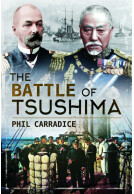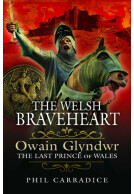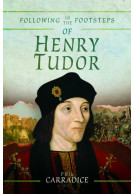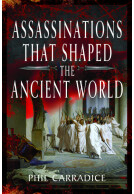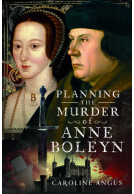The Greatest Spy Writers of the 20th Century (Hardback)
Buchan, Fleming and Le Carre
Imprint: Pen & Sword History
Pages: 168
Illustrations: 32 mono illustrations
ISBN: 9781399071864
Published: 7th June 2023
(click here for international delivery rates)
Need a currency converter? Check XE.com for live rates
| Other formats available - Buy the Hardback and get the eBook for £1.99! | Price |
|---|---|
| The Greatest Spy Writers of the… ePub (3.6 MB) Add to Basket | £6.99 |
The spy novel has, over the past hundred years, become one of the most popular literary genres. The best exponents have become household names, as have their characters, heroes and villains alike. From Richard Hannay to James Bond and George Smiley, the spies and spy-hunters of fiction have developed from the printed page to grace the movie and television screens - with huge success.
Uncovering the greatest or best spy writers of the Twentieth Century has not been easy. There are so many to choose from. Ultimately, however, the choice has come down to three highly significant and successful exponents of the art, writers who cannot be ignored but, more significantly, who were leaders, movers and shakers in the art of writing spy fiction.
John Buchan was at the forefront, arguably the first in a long line of spy writers - and still one of the finest. Classic tales like The Thirty-Nine Steps and Greenmantle set the benchmark for everyone else to follow. Ian Fleming's creation of James Bond in books like Goldfinger and From Russia with Love took the spy novel to new heights of glamour and exotic settings. John le Carre's world of spies, double-dealing, betrayal and seedy backstreet assignations is the very antithesis of Fleming's Bond but its realism and stark reality took the art of spy fiction to a new level.
Buchan, Fleming, Le Carre, arguably the greatest spy writers of the Twentieth Century. Do you agree? Read the book and make your own judgement. Whatever you decide, you will not be disappointed by the writing and the judgements.
This book introduces a number of 20th century spy authors giving backgrounds to their characters as well as they themselves. For those who are fans of spy novels and short stories they’ll learn more about the authors who created them. For those unfamiliar with key names in the genre it will be an excellent source to begin their exploration.
NetGalley, Patrick Golden
5 Stars
Army Rumour Service (ARRSE)
I recommend this book to anyone with either an interest in the genre or the authors.
Read the Full Review Here
The Greatest Spy Writers of the 20th Century turn out to have had just as exciting lives--well, almost, and sometimes even more so--as the characters they wrote about. This book gave biographies of what the writer considered the three greatest spy writers of the 20th century: Ian Fleming, John Buchan and John Le Carre. He also provided critiques of writing and followed the stories on to the big screen. There was also an interesting introduction that traces the history of spy stories.
NetGalley, Juliane Silver
So if you love spy stories delve into the lives of some of the greatest writers of the genre and take another look at what makes the stories of these three so much fun to read.
Are you a reader of spy fiction? Do you ever wonder how the best authors of this genre got their ideas? Here is a title that brings readers into the world of three of the best authors in the field, Buchan, Fleming and Le Carre.
NetGalley, Joyce Laudon
The author clearly shows his love of spy fiction. He begins his introduction with his own introduction of books like Huntingtower and The 39 Steps by John Buchan. He fell in love with these novels starting at age nine when his grandfather gave him a Buchan book. Carradice returned the favor when, many years later, he gifted his grandfather a Le Carre title.
Spy novels are just a bit over 100 years old. With many authors to think about including Graham Greene and Eric Ambelr, among others, Carradice chose the three noted above. He feels that they are the best of the best.
Start with the excellent introduction and keep going. This book offers a very entertaining read and one that is filled with information. The author is a big fan of his subject.
A really fantastic look at three authors who might not have created spy stories, but left their mark not only in book form but in visual media also. Carradice does a very good job in describing the early life of these men, and what influenced their writing, and their thinking. Oddly all of them liked mountains and sking, which I found fascinating. The influence of intelligence work is looked at Buchan had some, Fleming and le Carré made it their occupations for a time, but changed them in many ways. Carradice looks at the movies, Bond especially and also discusses other writers of the period Greene, Maugham, and Eric Ambler. I very enjoyable look at the grandmasters of the genre.
NetGalley, Dan O'Leary
I enjoyed this book a lot, and knowing that Carradice's grandfather had an hand in getting young Carradice interested in spy stories, is one of the my favorite parts of the book. Recommended for literature students, people new to spies stories, and for fans that want to know more. Very well done, and quite enjoyable.
An ideal study guide for students
NetGalley, David Holman
There have been numerous volumes about these prolific authors of the spy genre, but most have been lengthy, in-depth profiles which have somewhat proved to be inaccurate. However, Phil Carradice’s short guide into whom undoubtedly must be considered the three 20th century masters of the spy-fiction genre, is a nice compact companion to the their life and works which provides their readers with a further insight to the writers behind their favourite spy books. Sadly, all three authors are no longer with us, but they each leave behind a legacy which we all continue to enjoy in both page and screen (one day, someone will decide to bring Buchan’s Greenmantle to either the large or small screen screen).
The style of presenting these biographical insights alongside a short introduction to the birth of the ‘spy’ novel, is light-hearted and non-biased, as other equally-popular authors, such as Somerset Maugham, Eric Ambler, Graham Greene, Len Deighton and Frederick Forsyth who ran level-pegging with Buchan, Fleming and Le Carre in their heyday respectively, are not just given insightful glances but analysed alongside these three greats so providing the reader with a reference point to seek out their respective works.
In conclusion, the author of this particular work has produced a nice easy-to-read guide on these writers, which as a teacher of English literature, I would highly-recommend to be used as a study guide in schools and universities before delving into study their classic works. In light of this, when the book is published, I will be ordering several copies for my own study groups.
Rating: 5 out of 5 stars
NetGalley, Dylan Simon
I am a big fan of spy thrillers and would like to one day dive into the more classical spy thrillers by authors profiled in this great work. The author has done a great job of providing a “who’s who” of these great authors. This book should serve as a great reference source for espionage aficionados.
An excellent starting point for those new to spy novels.
NetGalley, Martin Paul
The author notes in his introduction that this slim volume will cause dissent amongst fans of spy novels. The omission of writers such as Eric Ambler, Len Deighton and Robert Harris will no doubt cause diehard fans to whinge and whine. But this is quite a personal take on three authors whose works arguably set the tone for all that came after, and as a fan of all three, I don't disagree.
The first half of the book is essentially three potted biographies of John Buchan, Ian Fleming and John le Carre (The Triumvirate as he calls them). I'm not a great reader of biographies, so I can't say if these add anything to what has gone before, but they certainly do paint a clear and distinct picture of how three men came to sit down and write spy books. There are regular asides and reflections to add context to their contributions to the genre.
The remainder of the book is devoted to a wider look at spy novels, and devotees will be glad to know that Deighton et al get honourable mentions. It's a nice broad commentary of how The Triumvirate influenced those who came after.
I'd thoroughly enjoyed the book and would definitely recommend it old fans and new, of espionage novels.
About Phil Carradice
Phil Carradice is a well-known writer and historian with over 60 books to his credit. A poet, story teller and broadcaster, his most recent books are The Cuban Missile Crisis (Pen and Sword), The Call Up (Fonthill) and the novel Stargazers for Accent Press. He is a regular broadcaster on BBC Radio and TV, presents the BBC Wales History programme 'The Past Master' and is widely regarded as one of the finest creative writing tutors in Wales.
A Hundred Years of Spying (Hardback)
Early espionage organisations like Walsingham’s Elizabethan spy network were private enterprises, tasked with keeping the Tudor Queen and her government safe. Formal use of spies and counter spies only really began in the years after 1909, when the official British secret service was founded. Britain became the first major proponent of secret information gathering and other nations quickly followed. The outbreak of war in 1914 saw a sudden and dramatic increase in the use of spies as the military quickly began to realise the value of covert intelligence. Spying ‘came of age’ during the war…
By Phil CarradiceClick here to buy both titles for £40.00










